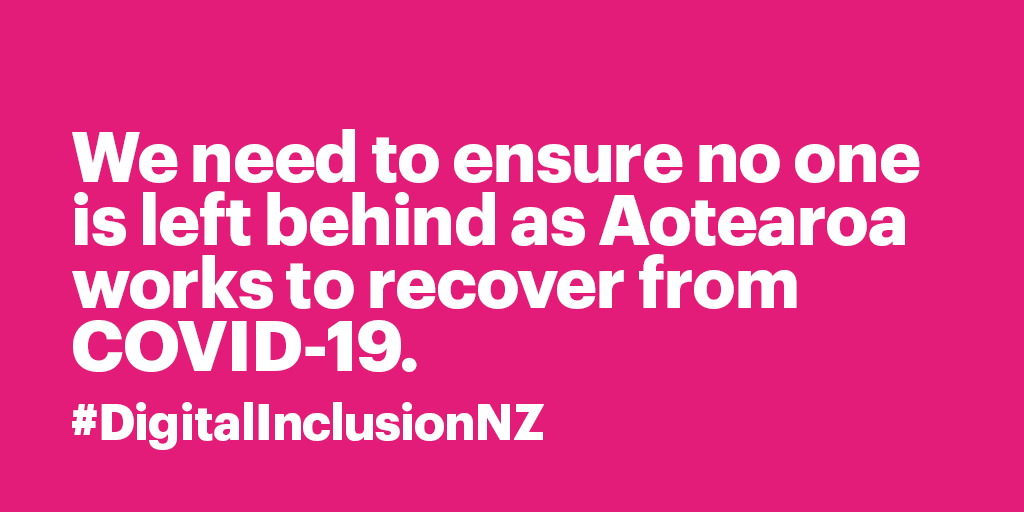We can have a society that prioritises our interconnections with each other. We're at a juncture where we can get it right – or get it wrong. Together, let's choose the path that leads to the future we want.
- Affordable connectivity
- Getting devices to people who can’t afford them
- Wrap around support for the newly connected
- Digital skills for displaced workers and our small businesses
- Longer term Internet resilience
LIANZA lobbied for the plan to be shared with the Minister of Local Government, Hon Nanaia Mahuta and the Minister for Internal Affairs, Hon Tracey Martin.
LIANZA President, Rachel Esson says, "Not sending the plan to the Minister of Local Government seemed a lost opportunity, since public libraries play an essential role in digital inclusion in their communities. We also considered Internal Affairs was a key department as it is the home of the Digital Inclusion Blueprint, Office of Ethnic Communities, the Central/Local Government Partnership Office and the National Library of New Zealand who all have a strong interests in this area. We are delighted that InternetNZ added these two key Government ministers to the call to implement this digital inclusion plan."
LIANZA thanks all the members who took time to add their response to the draft plan, and to highlight the role that libraries play in digital inclusion.
The COVID-19 pandemic has increased the reliance of New Zealanders on the Internet for work and study, information, and social interaction. InternetNZ Chief Executive, Jordan Carter, says ensuring every New Zealander can access the Internet is now more important than ever.
“We need to ensure no one is left behind as New Zealand works to recover from COVID-19.”
“We especially need to focus on groups in society that need different kinds of support, including Māori, Pasifika, older people, people with disabilities, those on lower incomes, rural users, and the homeless."
“It’s important we take a holistic approach. When people think of those digitally excluded, they often think about infrastructure or cost limitations. But it’s much more than that,” says Carter.
“Kiwis also need to have the skills, motivation, and trust to be online.”
The Government released its vision for digital inclusion in New Zealand, The Digital Inclusion Blueprint, in March 2019.
“Our plan builds on the Government’s blueprint by setting out a concrete and achievable set of actions,” says Carter.
“Now is the time to step up our digital inclusion efforts, not just as part of our national response to COVID-19, but also as a foundation for New Zealand’s economic recovery and ongoing wellbeing.”
The full plan can be found on the InternetNZ website.



 RSS Feed
RSS Feed